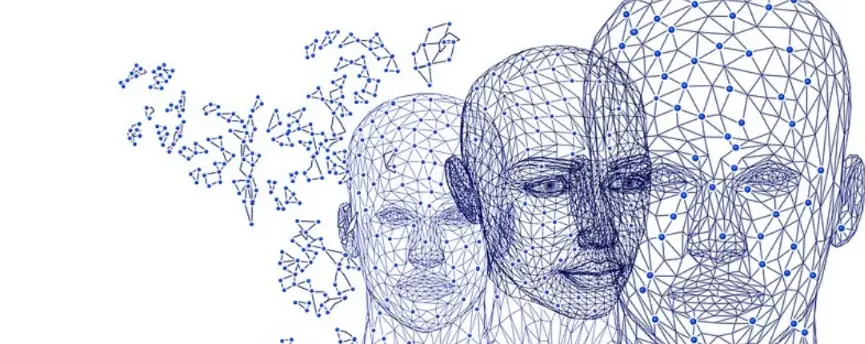Last Updated on May 21, 2024
Do you think someone is prone to having the victim syndrome because of their personality?
If so, this article will be useful to you.
Here, we’ll talk about the type of personality that likes to play the victim. We’ll also talk about the disorders associated with it, the signs, and more.
The goal is to help you know more about the personality of people who play the victim. This way, you can understand them better.
A day in the life of a person with victim mentality

A person with a victim’s mindset lives life acting like there’s always something wrong. They think the world is plotting against them, and they would feel guilty thinking otherwise.
Even if something great happens, they’re wired to overlook it and not see it as a blessing.
For example, they got a job offer to relocate to a promising city. Ideally, they should receive it as good news — it has a reputable school, church, and safe neighborhood. However, because of their way of thinking, they see it as their employer’s plot to force them to stay away.
What personality disorder likes playing the victim?

There’s no specific type of personality disorder behind the people who always play the victim. However, self-victimization is more likely to occur in people with certain disorders.
Narcissistic personality disorder (NPD)
For people with NPD, the world should revolve around them. It’s why they believe they can have anything they want whenever they want it, and those who won’t give it to them are “the bad guys”.
Defining traits of people with NPD:
- Sense of entitlement – They feel the world owes them so they’re entitled to do anything in the world — and everyone else deserves the same entitlement.
- Grandiosity – They have an inflated sense of their own being. And they fantasize about having unlimited success, wealth, and power.
- Excess need for admiration –They want other people to look up to them. Even if unearned, they want respect and praise from others.
Paranoid personality disorder (PPD)
This type of disorder belongs to a group of mental health conditions called EPD or eccentric personality disorder. People with PPD suffer a heightened level of paranoia, and they constantly see danger in front of them.
Defining traits of people with PPD:
- Neverending suspicions – They’re always suspicious even when there’s nothing to be suspicious about. Some people would even dub them “batshit crazy”.
- Neverending fear – They believe it’s only a matter of time until something goes south in their life.
- Peculiarity – They have delusions. And because they act on these delusions, they act irrationally and abnormally.
Antisocial personality disorder (APD)
A person with APD believes they’re doing things for other people. And if others want them to stop doing things, they believe they’re the victims. They’re manipulative, exploitative, and violent.
Defining traits of people with APD:
- Low emotional intelligence – They’re incapable of understanding situations and reading emotions. They also have a lack of empathy and poor communication skills.
- Troubled personal relationships – Because of their emotional incapability, they don’t vibe well with others — even with their family.
- Criminal behavior – They do things without thinking them through. Consequently, their criminal behavior warrants a restraining order.
How to know if someone likes to play the victim

Encountering people with a victim mentality isn’t uncommon, says psychiatrists and behavioral analysts. They have certain traits like the ones below.
Self-righteousness
They think they’re right all the time — even when they’re clearly at fault. For them, someone else is always deserving of blame. Because of their holier-than-thou attitude, they don’t take responsibility for their actions.
Signs of their self-righteousness:
- Parade of good works – They only do charitable acts publicly. Their point of doing good deeds for others is to make themselves appear good.
- Disgust for sinners – They judge and belittle others for their faults. And they act as if the wrongdoers can never do anything good again.
- Rejection of criticism – They’re easily insulted, and they take offense at almost any unexpected opinion against their character. Even if the goal of receiving criticism is for constructiveness, they reject it and believe they know better.
Low self-esteem
Many people who play victims may see themselves as “better” than other people. However, they don’t genuinely believe that. They don’t take care of their physical and mental health because deep inside, they don’t see these aspects as important.
Signs of their low self-esteem:
- Poor confidence –They have little belief in themselves. Because they doubt themselves a lot, they’re always afraid to go out there and try new things.
- Lack of control – They give in to their feelings of powerlessness. And they don’t attempt to help out or make a change.
- Pointless habits – Their priorities are habits like drinking and smoking — habits that won’t have any positive effect on their well-being. All they want is to get distracted from their thoughts and unpleasant perception of themselves.
Filled with negativity
Inside their brain are all these negative thoughts. They’re wired to think nothing good will ever happen to them. Because of their mindset, they’re eternal pessimists who anticipate bad news — odd as it may be.
Signs of their negativity:
- Constant worrying – They worry at the slightest hint that something will go unexpectedly — even before there’s a need to worry. Because of this, they would express their paranoia often and would always want to feel protected.
- No trust in others – They don’t think highly of other people who offer to support or help them advance in life. So they’re stuck at a life stage, and they tend to be loners who always rely on themselves.
- Constant complaints – They enjoy playing the victim and would go out of their way to find even the smallest problems in a situation. Even if a problem gets fixed, they have a compulsion to “unfix” it again.
The bottom line
People who play the victim may get under your skin. However, do your best to overlook their negative side.
Their victimhood is just one part of them. Maybe, and if you look closely, there’s something about them you’ll love.
Related: How Do I Stop Being the Victim and Become a Victor?